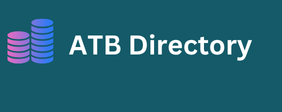This includes tracking volunteer hours managing communication with volunteers and identifying opportunities to engage volunteers more effectively. Communicating with stakeholders NGOs must communicate with a range of stakeholders including donors volunteers beneficiaries and partners. A CRM system can help manage these communications by providing tools for email marketing social mia management and other communication channels. Data analysis A well design CRM system can provide valuable information about NGO activities. This includes tracking key performance indicators KPIs such as donor retention rates volunteer engagement rates and other metrics that help NGOs understand their impact.
The CRM system should be able to integrate with other
Increasing efficiency. By automating many tasks relat to managing donor relations recruiting volunteers and communicating with stakeholders a CRM system can help NGOs work more efficiently. This allows organizations to focus on their core Journalist Email List mission and maximize the use of their resources. There are a number of factors to consider when choosing a CRM system for an NGO. They include Ease of use A CRM system should be easy to use and understand even for users who may not have much technical experience. Integration with existing systems systems us by the NGO such as accounting software or project management tools. Customizability The CRM system should be customiz according to the specific nes of the NGO.
In summary a CRM system is a valuable tool for NGOs
This can include custom fields workflows and reports. Security A CRM system should have robust security features to protect sensitive donor ATB Directory information and other data. Cost The cost of the CRM system should be within the NGO s budget taking into account any ongoing maintenance and support costs. donor management volunteer engagement stakeholder communication and data analysis. When choosing a CRM system NGOs should consider.


